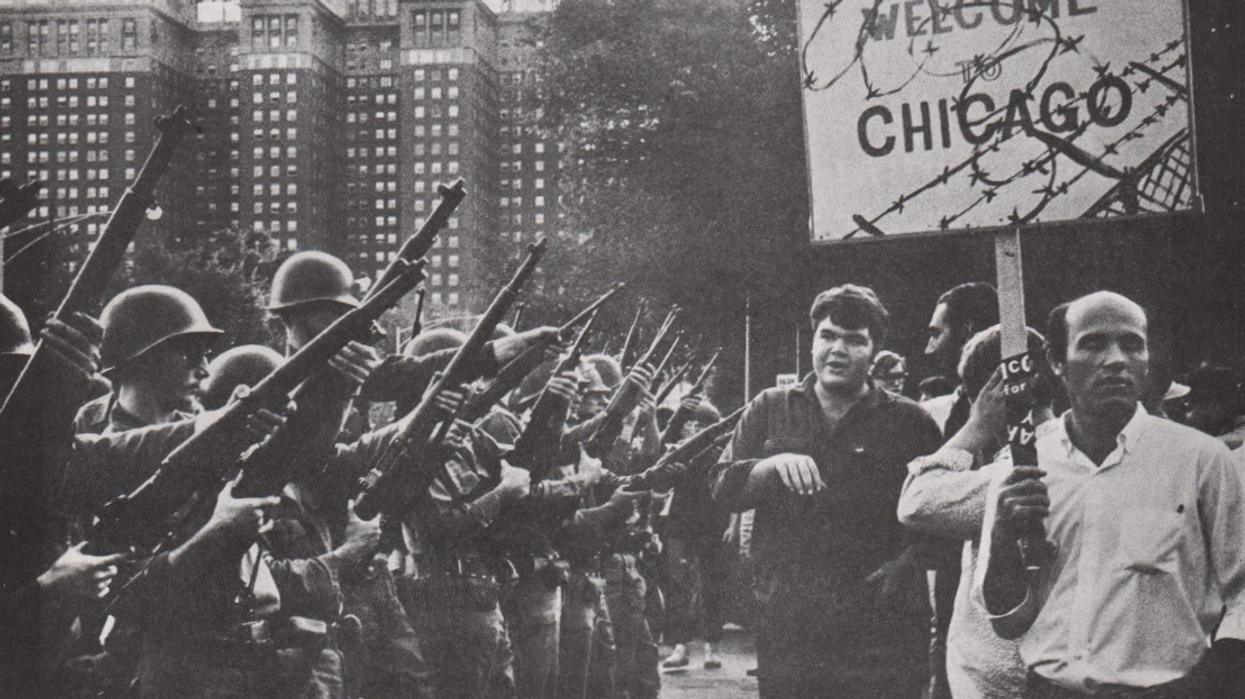Page is an American journalist, syndicated columnist, and senior member of the Chicago Tribune editorial board.
When a friend reminded me that it's almost time for the Democratic National Convention, I wanted to say, "That's OK, I'm good with the last one."
But, I didn't. I'm too much of a political junkie to ignore this level of political history while it's being made.
As a matter of historical importance, it's not the party that matters to me as much as the role these events play in making political history. But I also am a Chicagoan who cares about the city and the image it presents to the world.
As such, I felt great apprehension before the last Democratic convention in Chicago in 1996, especially in light of the fiasco that erupted during the party's convention in 1968.
Yes, the 1968 convention, in case you weren't around, was the one widely and unpleasantly remembered for violent clashes between police and protesters, a chaotic scene that set the party up for what became nominee Hubert Humphrey's loss in the fall to Republican Richard Nixon.
Fortunately, the 1996 convention came off well enough to be remembered less for the reasonably peaceful protests outside than for the sight of first lady Hillary Clinton, later the U.S. secretary of state, clapping along with other delegates doing the Macarena during an intermission.
Ah, talk about the politics of joy.
But I was sensing flashbacks to chaotic 1968 last week when about 40 people were arrested for blocking roads leading into O'Hare International Airport, one of the world's busiest, for more than an hour.
Illinois Gov. J.B. Pritzker later reassured the public that the city and state are ready to stop any disruption to the big event.
"Look, we believe in free speech, and we're going to allow people to protest," he told Dana Bash on "CNN Sunday Morning." "But the reality is we're going to make sure people have ingress and egress and that they're safe in our state."
Well, good luck, governor, and to Chicago Mayor Brandon Johnson too. Here's hoping our political leaders have learned some important lessons from our past convention experiences, including the missteps.
A special commission headed by Dan Walker, general counsel for Montgomery Ward who later would become Illinois governor, famously blamed the 1968 chaos in the streets on a "police riot." The report confirmed the widespread public impression that the Chicago police, in a classic Daley understatement, "overreacted." But it also pointed out the provocations they suffered, as well as examples of police showing proper restraint.
The success of the 1996 convention under Mayor Richard M. Daley, son of Richard J., showed how much the son and the city had learned from the mistakes of 1968. It's hard to remember now, because 1996 went so well, but there was palpable nervousness beforehand.
So it is in 2024. The reasons are different this time. In 1996, what caused the angst was the pressure of exorcising the demons of 1968. In 2024, what is prompting the worry is a new generation of activists and protesters using a level of aggression we haven't really seen since the late '60s. Once again, Chicago's 1968 demons have returned to fray our nerves. It's only the issues fueling the anger that have changed.
Brandon Johnson is about as far from Richard J. Daley in terms of ideology as a mayor can get. But he is likely to be confronted with similar quandaries over how much force to allow his police force to employ. A nervous city for now can only wait for August. It won't provide any comfort to him that Daley's reputation never recovered from the brutal scenes in Grant Park.
Chicago has been hosting party conventions since the Republican National Convention that nominated Abraham Lincoln in 1860. The vast majority of those gatherings have reflected well on the city and pumped money into the local economy.
It's your turn now, Mayor Johnson. It's not that the whole world is watching, as the young protesters chanted in 1968. But a whole country will be.
(C)2024 Clarence Page. Distributed by Tribune Content Agency, LLC.




















Trump & Hegseth gave Mark Kelly a huge 2028 gift